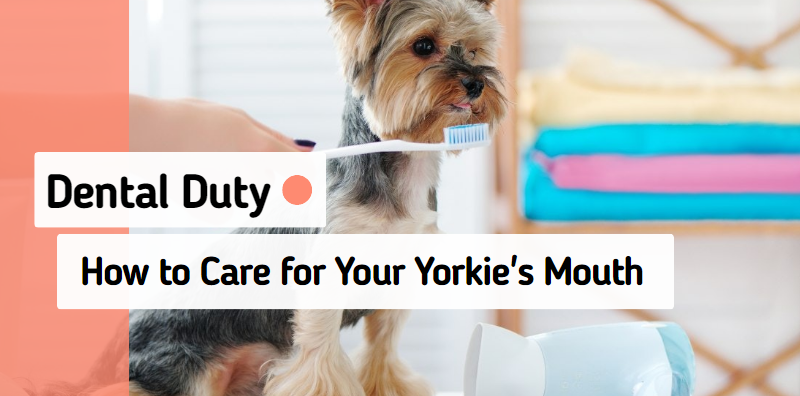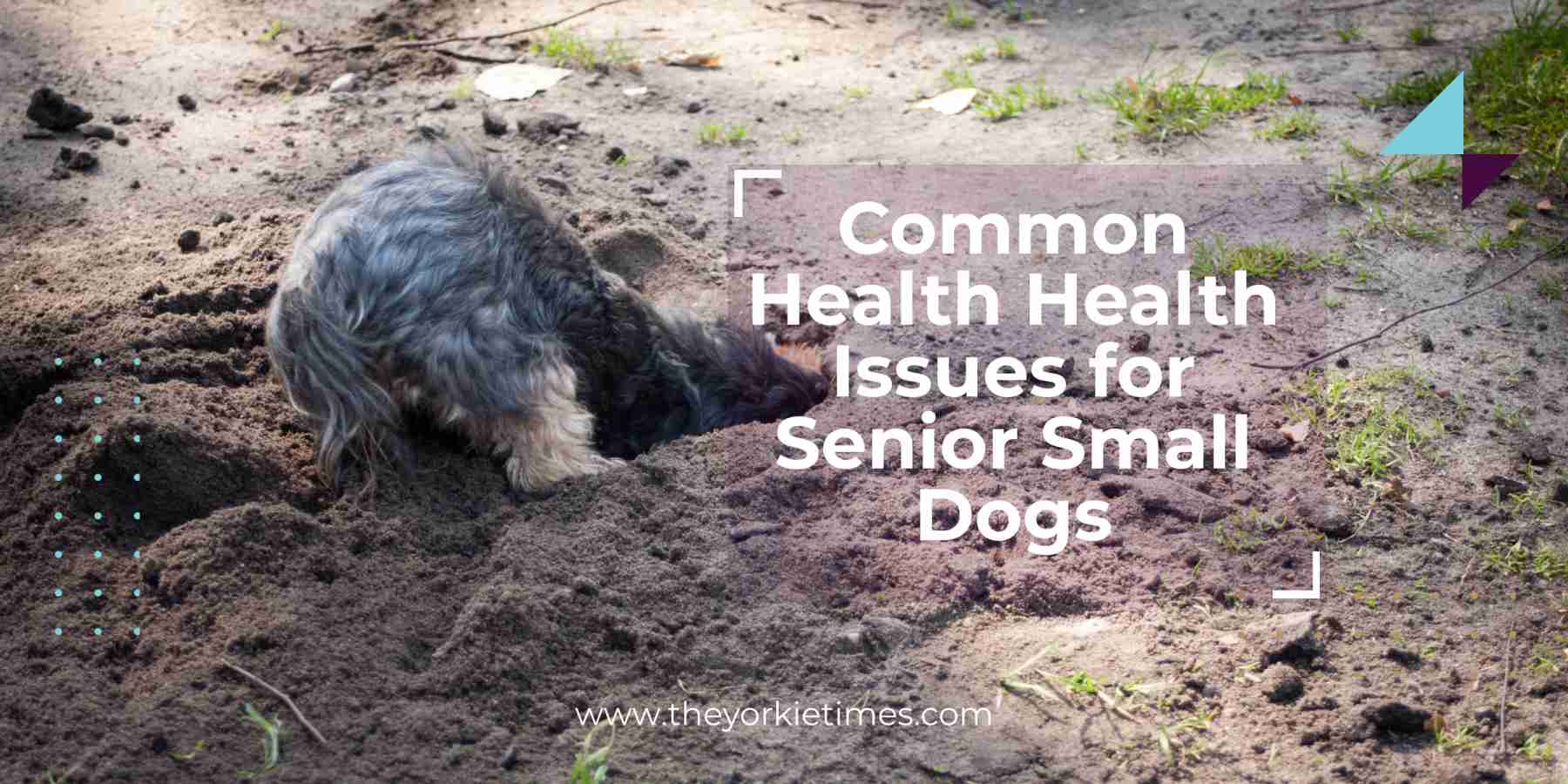Dental Care Important For Your Yorkie’s Teeth
No one likes the dentist. Not even our furry kids. Unfortunately, Yorkie teeth are prone to dental issues due to the limited size of their mouths and some genetic predispositions, such as plaque buildup and tooth decay.
The good news?
If done routinely, dental care can be an easy, preventative part of your pet’s health, instead of a costly surprise further on down the road.

1. Yorkie Dental Care – Annual Cleanings
Just like with us, the best dental care your pet can receive is by an actual dentist. Most, if not all, general practice veterinarians are as qualified to clean teeth as they are to give vaccinations, so no need to go looking for an expensive specialist.
Your Yorkie’s teeth should be professionally cleaned at least once a year. Dental cleanings for dogs are done under anaesthesia and while this often gives many people cause for concern, there are a multitude of ways your veterinarian will mitigate any risks for the procedure.
Your veterinarian will want to physically examine your Yorkie before any kind of procedure is even scheduled and make sure they seem appropriately healthy for anaesthesia. A blood panel to assess the function of the internal organs that process the anaesthetic drugs is also usually warranted, especially in smaller breeds.
Once your pet has passed these tests with flying colors, you and your veterinarian can schedule the cleaning. The cleaning itself usually takes about the same amount of time it takes us and your vet will have a chance to properly assess mouth tissues, remove any plaque buildup, and perform x-rays.
See? Just like us. Except your Yorkie doesn’t get scolded for not flossing.

2. Yorkie Dental Care – At-Home
You’ve just picked up your wiggly, happy little Yorkie from her annual dental cleaning at the vet. Her teeth are pearly white and her breath, while maybe not minty-fresh, is no longer unbearable. So what can you do at home to help preserve this fresher breath until the next annual cleaning?
Here are some suggestions:
- Brush: It sounds absurd, but many veterinarians recommend regular brushing to help prevent an excessive buildup of tartar. There are specialized brushes that mount on your finger and dog toothpaste that is flavored with chicken, tuna, or beef. Never use fluoride-based toothpastes as these could potentially make your Yorkie very ill. It’s usually best if you introduce brushing at the earliest age possible. Not to say you can’t teach an old dog new tricks, but…
- Dental chews: There are a variety of chews out there that can help to remove and prevent some tartar. Virbac is a manufacturer of quality dental chews, as well as toothpastes and even oral hygiene kits!
- Water additives: Maybe your pup isn’t into chewing? There are hygienic oral rinses that can be added to your pet’s water bowl that may help to freshen breath and prevent tartar buildup.
- Avoid hard toys: Chewing is a great, natural behavior that can have some dental benefits. Avoid things like antlers, hooves and other bone products, however, as your dog’s teeth grinding against bone can sometimes result in fractured teeth.

3. Yorkie Dental Care – Difficulties
It can be very tricky to know when your Yorkie is having mouth troubles. Dogs are stoic creatures and rarely admit to any pain or discomfort they are in.
Here are some red flags that may warrant your veterinarian’s attention:
- Bad breath: All Yorkies will have bad breath at some point in their lives, but if the scent of your pup’s kiss is bowling you over, it might be worth having him checked. The cause could be something as simple as an overdue dental cleaning, but it’s worth examining and ruling out something more sinister, like cancerous growths.
- Discolored teet:. Just like us, your Yorkie’s teeth will yellow or brown over time as plaque and tartar accumulate in the mouth. Because Yorkie’s have small mouths, it only takes a comparatively small amount of tartar to discolor the teeth and infect the gums. Heavy discoloration may mean the teeth have started to decay and in severe cases, these teeth must be extracted. The best course of action? Call your veterinarian and schedule a dental evaluation.
- Bleeding: If you note some blood in your pup’s mouth or on his toys – don’t panic! He may have scraped his gums on his chew toys or poked himself with a stick. If you notice chronic bleeding, however, it’s time to go to the vet to rule out severe gingivitis or oral ulcers.
- Not eating or chewing: If your Yorkie has stopped eating, slowed his eating, or stopped chewing on his beloved chewies, it could be a sign of mouth pain. Many dogs will still eat through even the most severe tooth pain, so consider this a big red flag, especially if your pet has never had a dental exam.

Just Like Us
Ok, so maybe we don’t have as many problems as the Yorkies do when it comes to dental hygiene, but the basic principles of care are the same. Make sure your Yorkie has their teeth professionally cleaned about once a year, consult your veterinarian with any concerns you may have, and stay proactive to avoid expensive and unexpected procedures.
Maybe you can align your pup’s dental cleaning schedule with your own?
For more tips on keeping your Yorkie healthy and happy, visit our health section!





I’m interested in buying a miniature YORKIE But I travel a lot and usually out of the country from May to September.. I did have a yorkie for 12 yrs but he had to be Put down cause he had cancer of the lungs and an enlarged heart.. it is still very painful for me till this day…
I’d really appreciate your opinion if I should get another mini yorkie.. The problem is finding someone to care and love for a yorkie like I would.. Thank you…
We have Loki a pocket size, lovely boy.